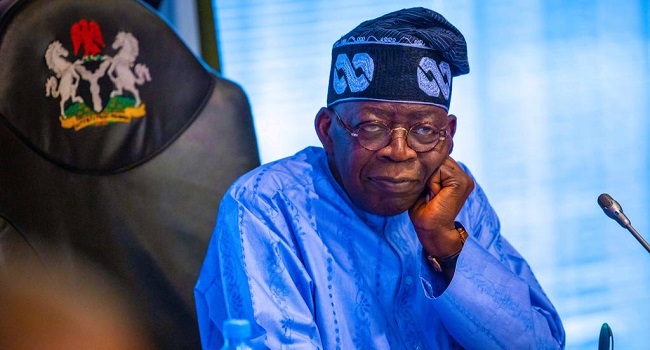Once again, the administration of President Bola Ahmed Tinubu has shown itself to be a sanctimonious and impervious custodian of mediocrity and an unapologetic persecutor of truth. In a profoundly petty act of despotic brigandage, the National Broadcasting Commission (NBC), that perennial errand boy of executive overreach and lawlessness, has banned Eedris Abdulkareem’s latest protest anthem, “Tell Your Papa”, from the nation’s airwaves. The reason? The song dares to name the unnamable and indict the unaccountable. It dares, with the unflinching audacity of a true artist, to speak for the dispossessed millions shackled by poverty, bad governance, and the insatiable appetite for impunity that thrives in the high places of Aso Rock.
Let us be clear: this is not merely censorship. This streak of authoritarian madness is an affront to the very soul of a democratic society. It is a brazen attempt to smother dissent beneath the suffocating cloak of so-called “broadcast standards.” It is the desperate gesture of a dictatorial regime allergic to accountability, terrified of its own citizens’ voices, and pathologically opposed to reflection in the mirror of popular art. Tyranny in Nigeria now wears a new face. The government’s rationale for the ban appears to be a thinly veiled attempt to silence dissenting voices. By targeting artists who use their platforms to highlight societal issues, the administration sends a chilling message to all who dare to speak out against perceived injustices.
Eedris Abdulkareem, a troubadour of the streets, has long used his music as a mirror to Nigeria’s moral deformities. From “Jaga Jaga” to “Nigeria”, he has chronicled the rot that politicians would rather sweep under red carpets at government houses. His latest offering, “Tell Your Papa” is a lyrical and satirical indictment of the Tinubu administration presiding over national misery, a ballad for the market woman crushed by inflation, for the jobless graduate, for the hungry child, for the hopeless youth. It calls out not just President Bola Tinubu, but his coddled progeny, Seyi Tinubu, whose recent sycophantic declaration that his father is “the greatest president in Nigeria’s history” sparked understandable fury in a nation where greatness has long been a stranger.
The government’s reaction has been cowardly in the extreme. On April 9, 2025, NBC issued a directive signed by one Susan Obi, Coordinating Director of Broadcast Monitoring, branding the song “Not To Be Broadcast (NTBB)” on account of its “objectionable nature.” Objectionable to whom? To a cabal of insulated elites fattening themselves while the masses gnaw on crumbs? To a government so bankrupt of ideas it mistakes lawful criticism for treason?
The Socio-Economic Rights and Accountability Project (SERAP) has rightly condemned this action, issuing a blistering 48-hour ultimatum to lift the ban or face legal action. “The NBC’s ban on the song is illegal,” declared SERAP. “The Tinubu government must act quickly and lift the restriction or face us in court.” This is the language of civic courage that Nigeria so desperately needs in an age where sycophancy passes for statesmanship, and the country’s moral compass lies buried beneath the carcass of political expediency and self-centered pedestrianism.
Let us remind this administration, in the spirit of Wole Soyinka and Fela Anikulapo Kuti, that a nation that criminalizes art has already begun digging its democratic grave. A government that fears music is one that no longer possesses the moral confidence to govern. The songs of the people are their chronicles of suffering, their archive of injustice, their anthem of resistance. No broadcast code, no matter how arbitrarily invoked, can silence the restless voice of a wounded people.
Indeed, what is more indecent than a government that cannot feed its people, cannot keep the lights on, cannot pay salaries, cannot curb inflation, yet musters the energy to police songs? What is more offensive than a ruling class that impoverishes the land and then demands silence from the victims of its incompetence and bad governance?
In a democratic society, artists play a crucial role in reflecting the realities of their communities, challenging the status quo, and fostering dialogue. Suppressing their voices not only hampers cultural development but also impedes the nation’s progress towards transparency and accountability. The Nigerian government must recognize that true leadership involves embracing criticism and using it as a tool for growth. By lifting the ban on “Tell Your Papa,” and refraining from future acts of censorship, the administration can demonstrate a genuine commitment to democratic values and the fundamental rights of its citizens.
We stand with Eedris Abdulkareem. We stand with every artist, writer, poet, and citizen who refuses to be cowed by the petty tyrants of our age. Nigeria’s true greatness will not be declared by the offspring of rulers, nor by sycophants in government commissions. It will be born on the streets, in the lyrics of protest songs, in the pens of fearless columnists, and in the defiant hearts of ordinary Nigerians.
If the Tinubu administration has any shred of democratic decorum or decency left, it should lift this ban immediately. Or else, let it prepare for a storm of public outrage, litigation, and the relentless judgement of history. For as the ancients taught us: lies have short legs; they can only run so far. But truth, like pregnancy, cannot be long hidden.





